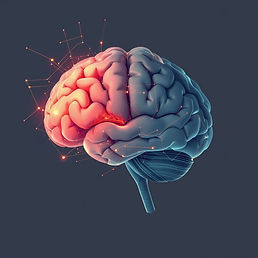
DR PAUL BLOOMFIELD MBBS FACSEP
![premiers-1280[1].jpg](https://static.wixstatic.com/media/a27bfc_29a764e58d2f4879a67e0b87fc1309b8~mv2.jpg/v1/crop/x_0,y_210,w_1280,h_604/fill/w_1060,h_500,al_c,q_85,usm_0.66_1.00_0.01,enc_avif,quality_auto/premiers-1280%5B1%5D.jpg)
Sport & Exercise Medicine Physician
DR PAUL BLOOMFIELD
Dr Paul Bloomfield is a Sport and Exercise Physician with over 30 years of experience in elite and professional sport. Throughout his career, he has worked with athletes across rugby league, rugby union, surfing, volleyball, and football (soccer). From 2015 to 2021, he served as the Chief Medical Officer for the NRL, and also worked as an NRL team doctor for 18 years.
Dr Bloomfield has an interest in the diagnosis and management of concussion and remains actively involved in advancing player safety and wellbeing.
He serves on several committees for the Australasian College of Sport and Exercise Physicians and contributes to the education and mentoring of future sport and exercise medicine specialists. He also provides medical advisory support to the Rugby League Players Association and to an innovative sports technology company.
Alongside his sports medicine work, Dr Bloomfield has been assisting in orthopaedic surgery since 1994, including in knee procedures, as well as hip, shoulder, upper limb, and foot and ankle surgery.
Dr Bloomfield welcomes all patients experiencing musculoskeletal injuries, concussion, or exercise-related conditions.
His aim is to support patients in returning to their preferred activities and to enhance their overall health and well-being.
APPOINTMENTS


CONCUSSION CLINIC
Individual Management of Concussion
Concussion
Dr Paul Bloomfield has a strong interest and many years of experience with sport related concussion. During 30 + years of professional sport involvement, he has seen and managed many concussions; he has also seen the significant evolution in the management of concussions over this period. Improving the identification and management of concussion at all levels of sport is a passion of his. Dr Bloomfield also strongly believes that all those involved in sport and in the identification and management of concussion need to be well informed and educated on the topic. In this regard, he has assisted with Sports Medicine Australia (SMA) and Australasian College of Sport and Exercise Physicians (ACSEP) education events.
Concussion is a brain injury. It is classed as a type of mild traumatic brain injury (mild TBI) without obvious structural injury to the brain such as bleeding or bruising. Concussion is also an evolving injury with symptoms and signs that can come and go and improve or deteriorate over time. Many of these symptoms and signs are not specific to concussion and more significant injuries such as brain bleeds must initially be considered.
It is currently thought that concussion resolves spontaneously over time. However, how long the brain takes to fully recover is not completely known. What is known is that with appropriate supervised management, the effects of concussion can be minimised, and the acute condition usually resolves in most cases in a predictable time frame of less than 2 weeks in adults and less than 4 weeks for children and adolescents (18 years old and younger).
Individualised management of each patient and each concussion is important as no two concussions are exactly the same. Initial rest (physical and mental) for 24 to 48 hours following a suspected concussion is however an important component of all concussion management. Adherence to this can help reduce the recovery period as exacerbation of concussion symptoms early on may lead to a prolonged recovery time-frame.
Repeated concussions or those occurring more easily or frequently over time should also be managed more conservatively; there is ongoing debate and research within the medical community (and played out in the media) about the exact risks and causes of potential long-term brain injuries such as CTE and other degenerative brain conditions and these conditions do need to be appropriately considered by all sports at all levels of participation.
Therefore education of all patients about the risks of their individual circumstances is something that should always be discussed in the individual management of their concussion.


